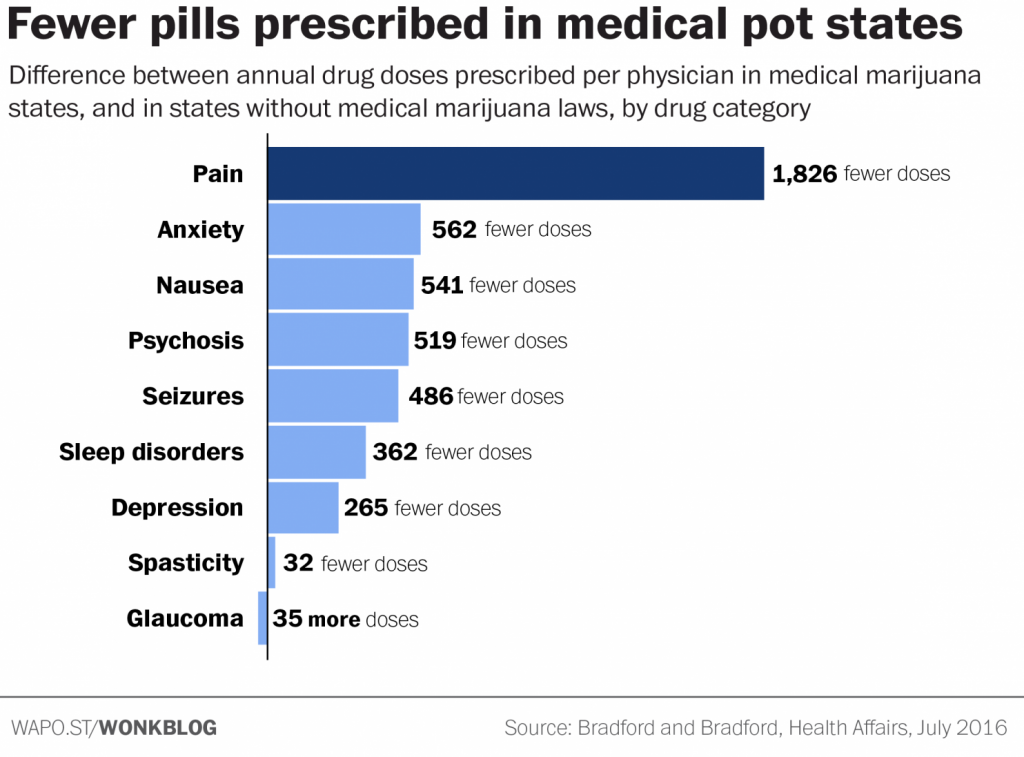Authored By: Craig Brand
Our politicians can’t have it both ways. It’s late 2017 and not just 75+% of America, but the world recognizes the health, psychological, medicinal and recreational benefits of cannabis. World Governments and law enforcement agencies recognize that legalizing cannabis not only greatly minimizes poor quality cannabis, but takes it out of the hands of gangs, cartels and illegal pushers. Federal and Local governments are provided with tax money, lots and lots of money. Legalization creates an industry, not just for those actually growing, but an ever greater job market for those providing ancillary services and products. Then think about all of those empty commercial zones now filled and a huge start up alternative energy industry thriving where it had no place before.
So, what is the problem? With 100-year-old shopping establishments going out of business and our politicians not seeing that it’s technology and robotics that are putting the American work force out of business not illegal immigrants; blaming the Mexicans will only cause hatred through false propaganda.
We the People are not We the Stupid.
We know that all of the “no sayers” bashing cannabis go home to a drink in their hand. Really? Hard liquor is ok, but first quality Mother Nature is not?
Mr. Government Employee, you forget your history; during the alcohol prohibition era, cannabis was not only legal but the vice of choice. Cannabis wasn’t illegalized until three years after the end of prohibition. It was illegalized not because it was a controlled substance, but because hemp competed against Mr. Randolph Hearst’s tree/pulp paper industry, competed against Dow Chemicals and their pulp chemicals, competed against a new product called nylon, and was one of America’s greatest ruse and false propagandas invented to save Harry Anslinger’s law enforcement career.
Anslinger served as the first commissioner of the U.S. Treasury Department‘s Federal Bureau of Narcotics (FBN). He was a starch supporter of alcohol prohibition.[1][2] Prior to the end of alcohol prohibition, Anslinger had claimed that cannabis was not a problem, did not harm people, and “there is no more absurd fallacy” than the idea it makes people violent. His critics argue he shifted not due to objective evidence but self-interest due to the obsolescence of the Department of Prohibition he headed when alcohol prohibition ceased – campaigning for a new Prohibition against its use.
Government Protecting Big Pharma & Contributions?
Research and the Government’s own data demonstrate that painkiller abuses and overdoses are lower in states with medical marijuana laws. MMJ patients are increasingly choosing medicinal cannabis over powerful and deadly prescription narcotics.
Christopher Ingraham, The Washington Post.http://www.thecannabist.co/2016/07/14/medical-marijuana-pharma fight/58396/.
Published in “the journal Health Affairs, Ashley and W. David Bradford, researchers from the University of Georgia, scoured the database of all prescription drugs paid for under Medicare Part D from 2010 to 2013. They found that, in the 17 states with a medical-marijuana law in place by 2013, prescriptions for painkillers and other classes of drugs fell sharply compared with states that did not have a medical-marijuana law. The drops were quite significant: In medical-marijuana states, the average doctor prescribed 265 fewer doses of antidepressants each year, 486 fewer doses of seizure medication, 541 fewer anti-nausea doses and 562 fewer doses of anti-anxiety medication. But most strikingly, the typical physician in a medical-marijuana state prescribed 1,826 fewer doses of painkillers in a given year”. http://www.thecannabist.co/2016/07/14/medical-marijuana-pharma-fight/58396/.
So why do the all powerful pharmaceutical companies need government protection? The number of painkiller prescriptions, in medical marijuana states, are tanking.
This chart shows why pharma companies are fighting legal cannabis.
 http://www.thecannabist.co/2016/07/14/medical-marijuana-pharma-fight/58396/.
http://www.thecannabist.co/2016/07/14/medical-marijuana-pharma-fight/58396/.
Pharmaceutical companies have long been at the forefront of opposition to marijuana reform, funding research by anti-pot academics and funneling dollars to groups, such as the Community Anti-Drug Coalitions of America, that oppose marijuana legalization.
“Pharmaceutical companies have also lobbied federal agencies directly to prevent the liberalization of marijuana laws. In one case, recently uncovered by the office of Sen. Kirsten Gillibrand (D-N.Y.), the Department of Health and Human Services recommended that naturally derived THC, the main psychoactive component of marijuana, be moved from Schedule 1 to Schedule 3 of the Controlled Substances Act — a less restrictive category that would acknowledge the drug’s medical use and make it easier to research and prescribe. Several months after HHS submitted its recommendation, at least one drug company that manufactures a synthetic version of THC — which would presumably have to compete with any natural derivatives — wrote to the Drug Enforcement Administration to express opposition to rescheduling natural THC, citing “the abuse potential in terms of the need to grow and cultivate substantial crops of marijuana in the United States.”
The DEA ultimately rejected the HHS recommendation without explanation.
Government More Interested in Helping Big Pharma’s Continued Support Than The Tax Payer’s Hard Earned Money:
In the same article, supra, the Bradfords data revealed that in just 17 MMJ states the pharmaceutical prescription reduction was saving the Medicare program money, hence the U.S. tax payer, more than $165 Million Dollars in 2013, alone. The Bradfords calculated that “the estimated annual Medicare prescription savings would be nearly half a billion dollars if all 50 states were to implement similar programs”.
A new study shows that MMJ Rxs could save the Medicaid program, (different than the Federal Medicare program), $1 billion on prescription drug costs if it were legal nationwide. This study comes as the Trump administration and his Southern Baptist, Attorney General Jeff Sessions is gearing up against the legalization of cannabis. Mr. Sessions stating “that the benefits of medical marijuana are overhyped”. New Study Says Medical Cannabis Could Save Medicaid (USA) $1Billion, 20 April 2017, The Washington Examiner.
Full report http://www.washingtonexaminer.com/medical-marijuana-could-save-1-billionfor-medicaid-study-shows/article/2620711.
So why isn’t Mr. Sessions arresting Big Pharma Nation for intentionally poisoning us and keeping us from securing better products that they don’t get to make money from, as opposed to the cannabis population? Maybe it all begins and ends with strong, well funded, nationalized lobbies. I guess money and the good old political establishment talks……..






